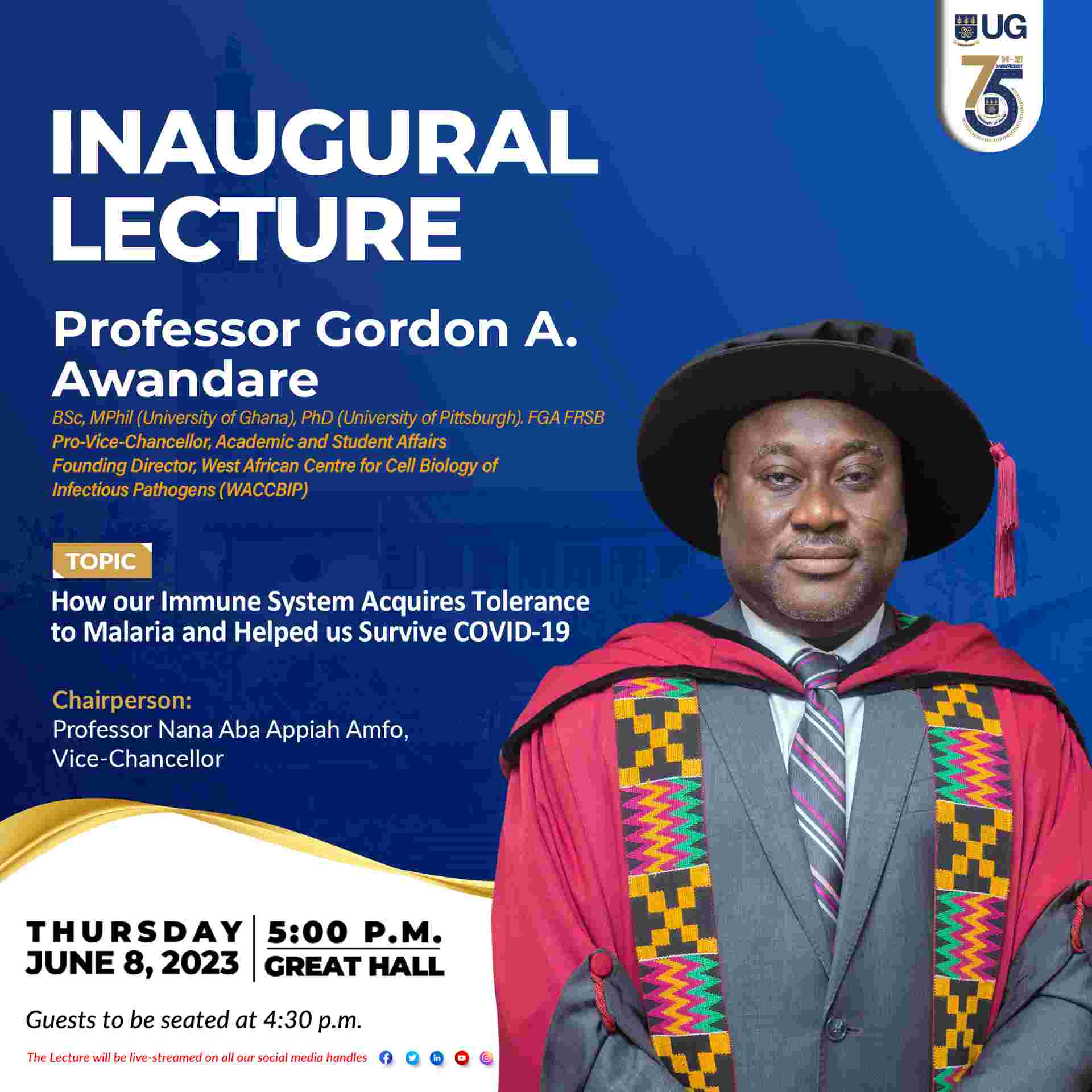Actualités
African Scientist reveal the Scientific Basis of Africa’s COVID-19 experience
by Olivia Koupaki and Manfreddy Binyet, WANIDA coordinators
Professor Gordon Awandare gave his inaugural lecture “How our Immune System Acquired Tolerance to Malaria and Helped us Survive COVID-19” at the Great Hall, University of Ghana on 8th June 2023. He spoke about how the COVID-19 pandemic unfolded in Ghana and West Africa as described by African scientists. Prof Awandare and his team described how the immune system acquired tolerance to malaria in Africa, helped Africans to survive COVID-19, shedding light as to how Africa responded to COVID-19.
Several immunology studies done on the immunity in zones of high malaria infections showed that there is a high proportion of individuals who have acquired a tolerance to malaria parasites. In such individuals, despite a high parasite level in their blood, innate immune responses are low as measured by levels of pro-inflammatory cytokines; these people do not look sick, they have asymptomatic malaria infection.
Seroprevalence studies led by Prof Awandare showed that a large proportion of the population in Ghana, Nigeria and Burkina Faso had antibodies against SARS-CoV-2 but no record of diagnosis, disease, COVID-19 related symptoms or knowledge of COVID-19 infection; they had been asymptomatically infected. These results led African scientists to question the role of the immune response in COVID-19 disease.
Key to understanding how cell reprogramming affected Africans’ response to COVID-19 is the study done by a WANIDA scholar, Ms Kesego Tapela, who confirmed that in most asymptomatic COVID-19 cases, there was no evidence of cytokine storm (very low or undetectable cytokine production upon infection). The cytokine storm is the innate immune response mostly associated with COVID-19 related symptoms and deaths. Upon investigation, asymptomatic patients exhibited evidence of high malaria exposure compared to COVID-19 symptomatic individuals.
Further strengthening the hypothesis that malaria exposure had a mitigating impact on COVID-19 exposure. Prof Awandare coined this as the “Awandare hypothesis” describing how Africans succeeded in immunologically responding to COVID-19. Essentially, the innate immune system “ignored” the virus for the vast majority of the population.
This outcome is a result of several years of research, and demonstrates that “African Science has a heartbeat”: African scientists can lead research and generate great outputs for the continent. During his speech, Prof Awandare stressed that the great progress made was driven by the World Bank implementing the African Centres of Excellence program- with support from African Governments. Other partners subsequently provided resources and networks such as WANIDA have accelerated capacity building. To maintain the African Science heartbeat, a lot still needs to be done: provide good career support in leadership, mentorship and training in the latest infrastructures. Professor Gordon Awandare concluded his inaugural lecture by appealing to stakeholders on the continent to invest in research funding to attract Africans researchers in the diaspora back to Africa.

